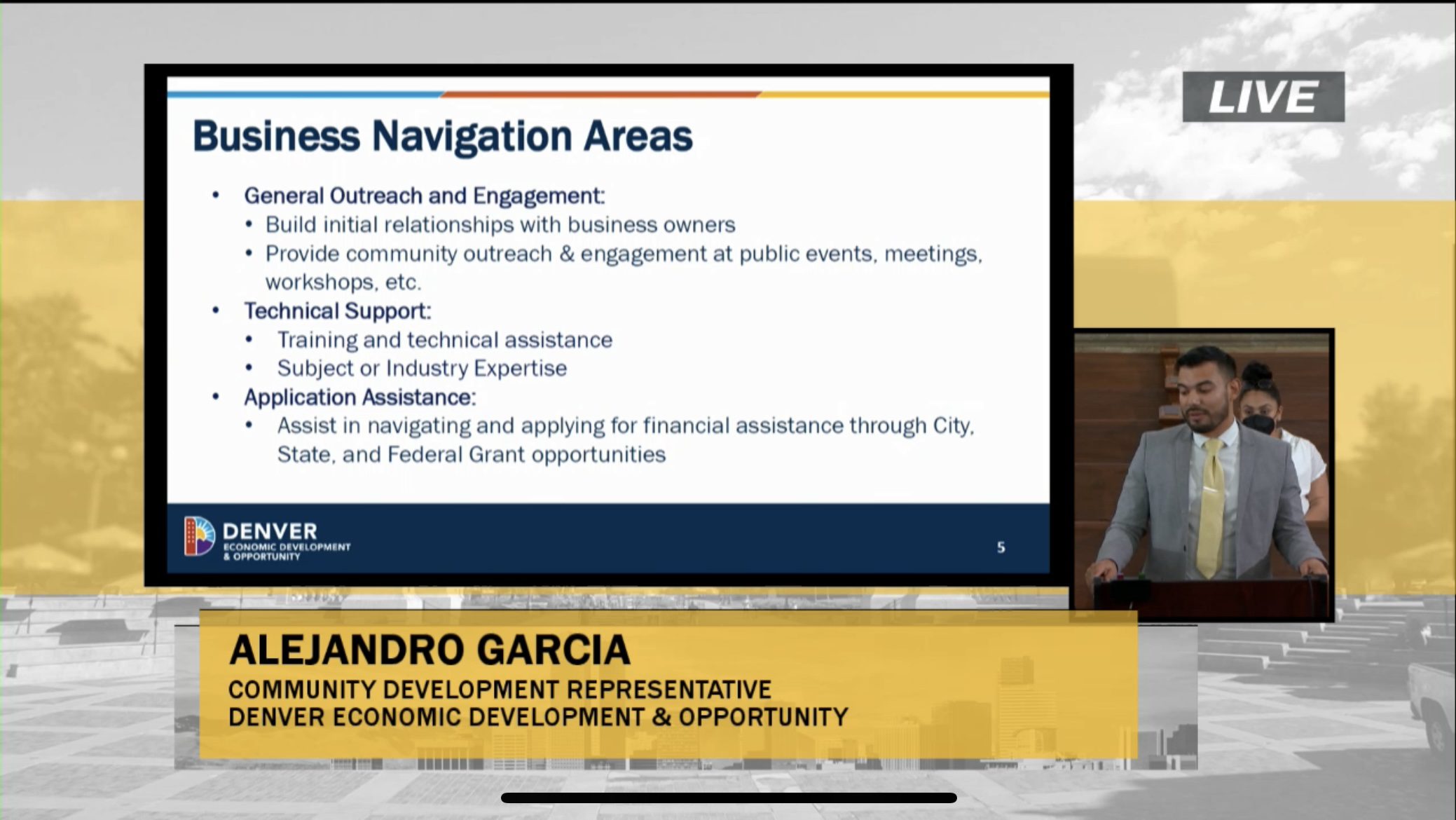
Historically marginalized communities have suffered the most in terms of loss of employment and the number of small businesses able to continue operations.
This program focuses on outreach efforts to Denver’s hardest to reach communities with navigators who will provide one-on-one support for small businesses.

Colorado Center on Law and Policy has partnered with Denver Economic Development & Opportunity and many other local nonprofits to offer small businesses dependable support in navigating the many funding streams, programs, and services available to them in Denver.
Business Navigators – individuals from our partners’ organizations – will connect in-person with small business owners operating in the program’s priority neighborhoods to offer guidance in identifying and connecting appropriate resources available from the City and County of Denver and/or other institutions.
The priority areas for this scope of work are NEST neighborhoods and their surrounding areas.
Athmar Park, Barnum, Barnum West, Clayton, College View, East Colfax, Elyria-Swansea, Globeville, Kennedy, Lincoln Park, Mar Lee, Montbello, Ruby Hill, Sun Valley, Valverde, Villa Park, Westwood, and Windsor.
Our History
Although Denver was growing rapidly prior to the COVID-19 pandemic, this economic burst was not benefitting everyone. The historic inequities faced by Denver’s Black, Indigenous, and people of color (BIPOC) communities have only been exacerbated by the pandemic. BIPOC communities have suffered the most in terms of loss of employment and the number of small businesses open and operating in Denver. The program was funded with $1.2 million from Denver’s American Rescue Plan Act (ARPA) dollars. It targets outreach efforts to Denver’s hardest to reach communities with navigators who will deliver information, provide workshops and one-on-one programming and funding application assistance for small businesses. Business navigators will take a holistic look at the needs of these small businesses and will work to connect them to services available from the city and/or our navigators.
CCLP is the program administrator and leads the program in:
- Work with DEDO to identify and create system to provide business navigation & services
- Supporting and managing navigators to implement programs to meet goals and objectives.
- Disbursing funds to navigators to deliver objectives of program
- Assist in developing a navigation ecosystem in areas where this support does not currently exist.
- Report and abide by the guidelines and reporting requirements of ARPA.
- Provide local, state, and federal compliance and reporting technical assistance for awardees as required.
- Collaboration and communication with DEDO staff for methodology through a project working document.



